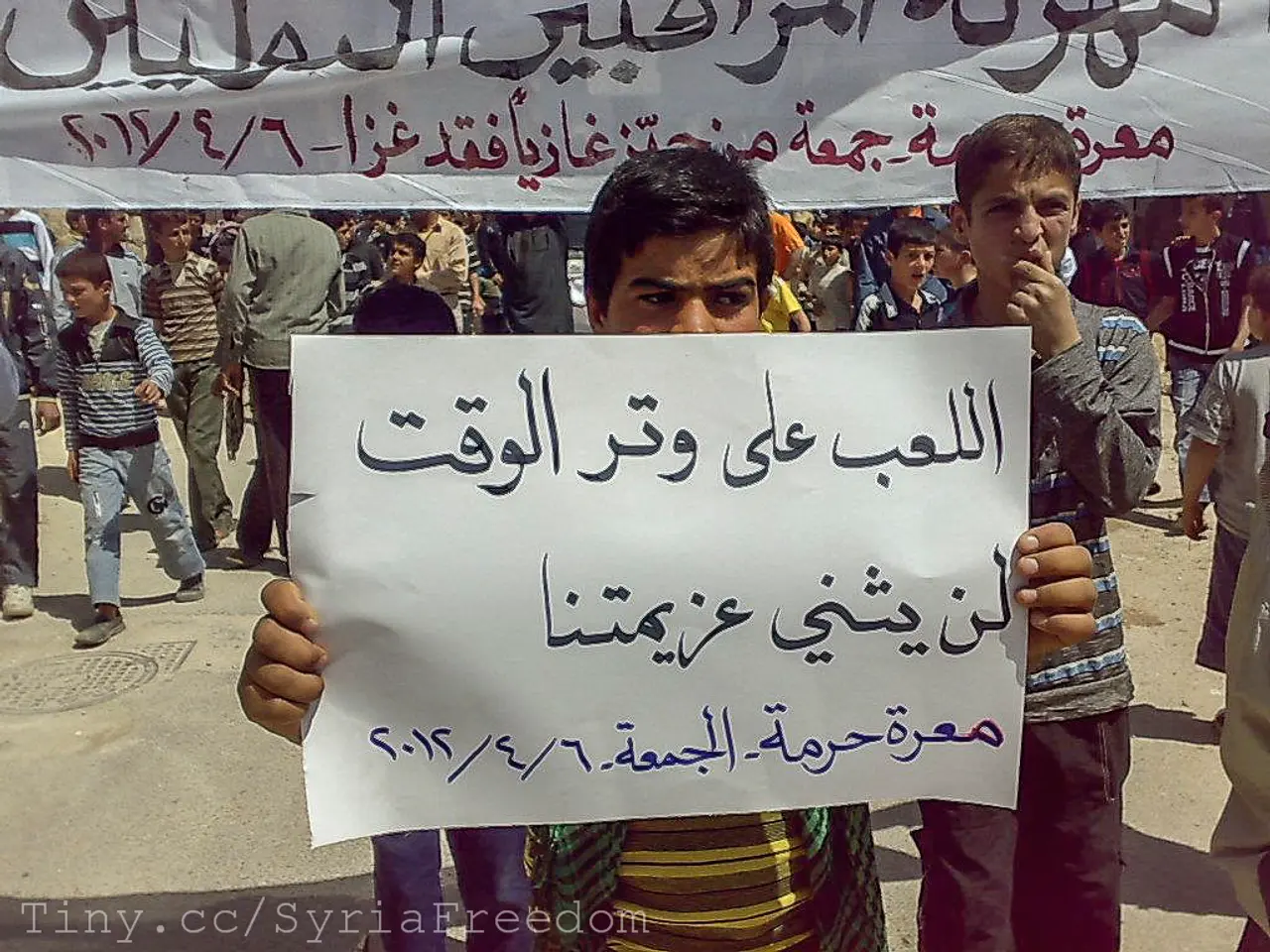Israel escalates Gaza offensive following counterattack on Netanyahu's strategy
In the heart of the ongoing Israeli-Palestinian conflict, a significant development has unfolded in the form of a general strike called by the families of detainees in Gaza. This civil resistance movement, primarily focused on Israel, aims to pressure Prime Minister Benjamin Netanyahu's government into negotiating a prisoner swap deal with Hamas and halting the war in Gaza [1][3][4].
The strikes, which involve widespread social and economic disruption, have caused blockages on highways, closures of businesses, and suspensions of public services. This public dissent against the government's military strategy and its refusal to prioritize hostage release is a clear indication of the deep-rooted opposition within Israeli society [1][3].
Notable public and political attention has been drawn to the plight of Israeli hostages held by Hamas, and the perceived risks of Israel’s intensified military occupation of Gaza. The families and many protesters argue that continuing occupation and war endanger the captives’ lives and are demanding a change in policy toward negotiated releases [1][3].
The impact on Benjamin Netanyahu and the Israeli government is significant. These strikes highlight internal opposition and growing pressure within Israeli society, including participation from major unions, celebrities, and prominent figures like former Defense Minister Yoav Gallant. Police responses to protest actions have included detentions and use of water cannons, showing the tensions between demonstrators and the state [1][2][5].
The strikes underscore deep divisions within Israeli society over the approach to Gaza and the conflict with Hamas. They emphasize the human cost and political stakes around prisoner exchanges and the ongoing conflict, potentially complicating the conflict dynamics by elevating civil unrest and public demand for a diplomatic solution alongside military considerations [3][4].
However, Benjamin Netanyahu views the general strike in Gaza as a means of support for the Palestinian Islamic movement Hamas and a hindrance to the release of prisoners [2][6][7]. He has accused supporters of the strike of aiding Hamas and believes the strike is detrimental to peace efforts [2][8].
As of now, there is no public confirmation that these strikes have directly resulted in prisoner releases. Instead, their role is to amplify public pressure on the government and shape the discourse around the conflict [1][3][5]. This potent form of civil resistance in Israel is challenging Netanyahu’s war policies and raising the urgency of negotiations for prisoner release, which could influence both domestic politics and the wider Israeli-Palestinian conflict.
The strikes, instigated by families of detainees in Gaza, have elicited international attention due to their impact on Israeli politics and the ongoing war-and-conflicts in the region. As a result of these protests, general news outlets are reporting deep divisions within Israeli society over the approach to Gaza and the conflict with Hamas, emphasizing the human cost and political stakes around prisoner exchanges.








